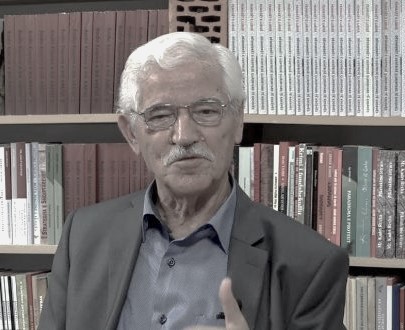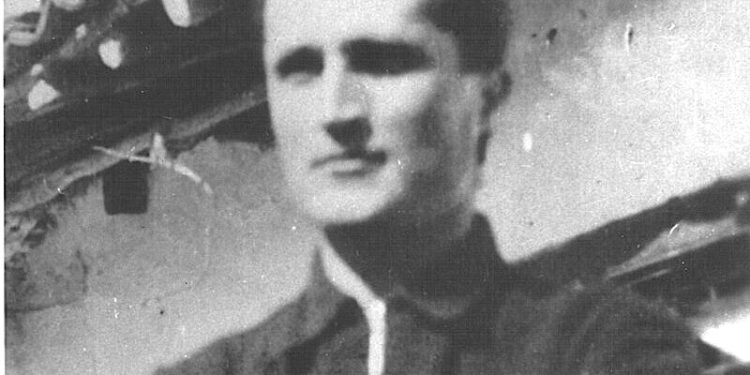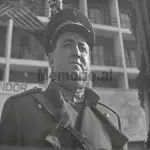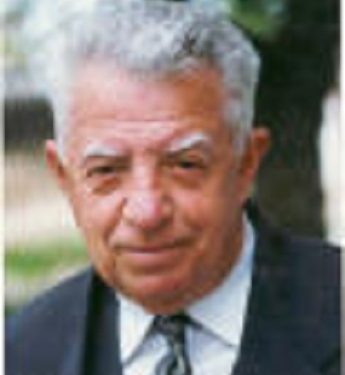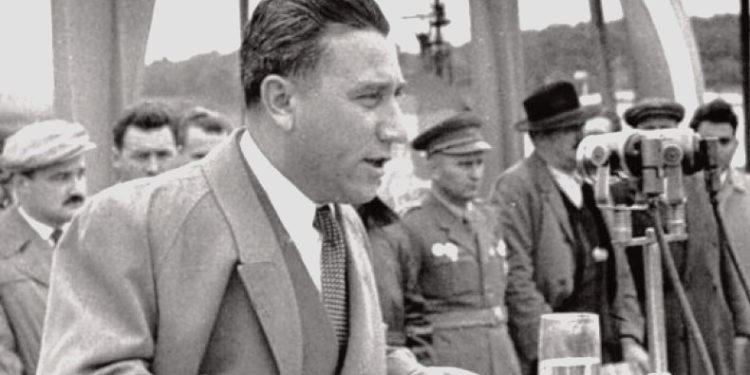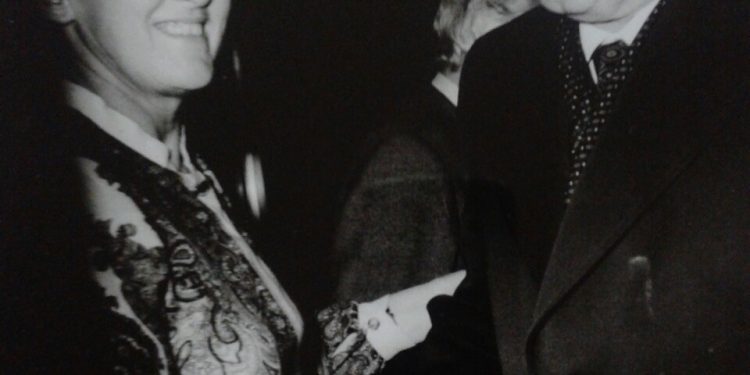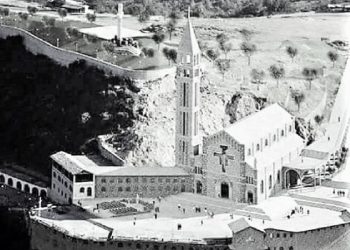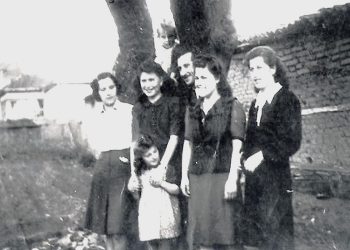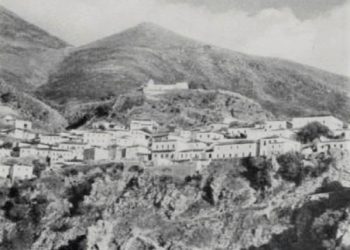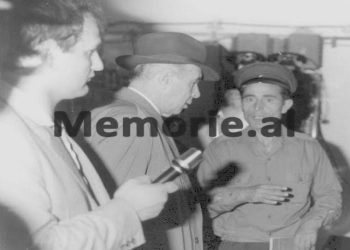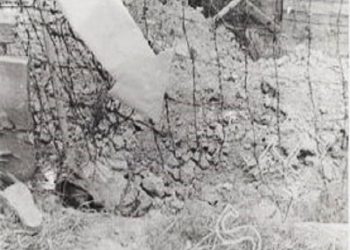Memorie.al / The secret police in the former Yugoslavia, established during the Second World War under various names: OZN-a, UDB-a, SHSSH, KOS, etc., was a notorious police organization that wreaked havoc with the mistreatment, repression, violence, persecution, and liquidation of people, both inside and outside Yugoslavia. The violence of that police force was most severely experienced and suffered by Albanians, from 1944-45 until 1966, when the criminal and anti-Albanian Aleksandar Ranković was dismissed from the post of head of that Service. That same police force continued its anti-Albanian pattern from 1981 until the end of the liberation war in 1999.
The State Security Service monitored the activities and work of almost all leading personalities, from the head of state down to the lowest level of organization, in all spheres of political, state, social, and economic life, and created secret files for each one, which it (mis)used when needed.
Based on suspicion against all Albanian cadres of whatever level, such a file was also created about the work and activity of the highest and best-known leader of Kosovo after the Second World War, Fadil Hoxha, and the members of his family.
The reports and analyses of the Serbian State Security emphasize that behind all the actions of the “Albanian nationalists and irredentists” after the Second World War and behind the clandestine hostile activities from these positions, lay the group of highest-ranking cadres of Albanian nationality, especially those who had returned from Albania during and after the war and had joined the National Liberation Movement in Kosovo.
The allusion of such an assessment is clear: to compromise the highest and most affirmed leaders from the ranks of the Albanians. From the reports and analyses of the State Security, it appears that the work and activity of Fadil Hoxha were monitored from his return from Albania in 1941, with the group of teachers sent by the Minister of Education, Ernest Koliqi, to open Albanian schools in Kosovo.
The report states that Fadil Hoxha was a member of the Shkodra Communist Group and implemented the positions of the Communist Party of Albania’s line in Kosovo during and after the war. The report mentions Fadil Hoxha’s imprisonment by the Italian fascist regime in 1941 and 1942 and that he managed to escape from prison under unclear circumstances. Fadil informed Enver Hoxha about everything that was happening in Kosovo and Yugoslavia, complaining that under the new regime, Albanians was suffering worse than in pre-war Yugoslavia.
Fadil and Enver had agreed on holding the Bujan Conference and on the Resolution of that Conference. According to the State Security report, Fadil Hoxha knew that the liquidation of Miladin Popović was being prepared, as all hopes for the unification of Kosovo with Albania had been lost, but he did not want to prevent the murder.
“The murder of Miladin was organized through the same channels as the capture and execution of Boro Vukmirović and Ramiz Sadiku, who were against the unification of Kosovo with Albania,” the report states. For all this, the Security Service learned from the Minister of Internal Affairs of Albania, Koçi Xoxe, who informed the representative of Yugoslavia in Albania, Spasoje Gjaković, in 1948, after the Informbiro Resolution.
Fadil was condemned by the Yugoslav Communist Party in 1956 due to his opposition to the arms collection action, as the most dramatic pressure against the Albanian people in Kosovo.
“After the IV Plenum of the Yugoslav Communist Party, in which the distortions of the State Security led by Aleksandar Ranković were judged, the attacks and judgments made by Fadil Hoxha against that Service created the conditions for the majorization and development of Albanian nationalism and irredentism in Kosovo,” the Security Service analysis states.
In the part referring to the arms collection action in Kosovo, the report provides these notes: “11,522 rifles; 10,004 revolvers; 4,400 bombs; 434 submachine guns; 260 light machine guns; 53 machine guns, etc., were collected, which Albanians would exploit for organizing an uprising with the aim of unifying Kosovo with Albania.”
After 1966, mainly after 1968, having been freed from the tutelage of Serbian and Montenegrin cadres, Fadil Hoxha became the first leader and pioneer of Albanian nationalism and irredentism. Since then, by himself and through his people, he held all the reins of the complicated game that led towards greater autonomy for Kosovo, the achievement of the status of a republic, and finally, unification with Albania.
In 1968, during the process of constitutional changes, the request for Kosovo Republic was openly made, when Fadil Hoxha was the chairman of the Constitutional Commission of Kosovo.
The most contested issues at that time were: the legal status of Kosovo; the issue of self-determination up to secession; the independent participation, or through Serbia, of the Kosovo delegation in the Chamber of Nations of the Federal Assembly; and the issue of the Flag. These slogans originated from Fadil Hoxha himself, but were left for certain nationalist individuals to spread, while hostile forces throughout Kosovo accepted them wholeheartedly.
However, according to the State Security report, Fadil Hoxha was quite clever not to allow the members of the Constitutional Commission to rush, knowing how much support, or rather opposition, these demands might have at the Federal and Republican Commission level.
Fadil, along with several others, was persistent that Kosovo be a direct constituent element of the Federation, bypassing the Republic of Serbia, and he achieved this. In all these demands, Fadil Hoxha had the main say, but he was elusive because he presented the maximal demands as the people’s demands, from which he would achieve as much as he could.
In the Presidency of the Socialist Federal Republic of Yugoslavia, Fadil Hoxha was responsible for relations with the Republic of Albania, and from this function, he was the creator of the development of educational and cultural relations between Kosovo and Albania. Regarding the November 1968 demonstrations, the State Security assessments state that the main role belonged to the future University of Kosovo professors: Fehmi Agani, Ali Hadri, while on the political front, Mahmut Bakalli, Ismail Bajra, Jusuf Kelmendi, Salih Nushi, Xhvdet Hamza were affirmed.
All these and others were in close connection with the highest Kosovar authorities: Fadil Hoxha and Xhavit Nimani, and no movement could develop without their knowledge, and Fadil Hoxha’s main goal after those demonstrations was to protect the cadres.
Thus, from those demonstrations until those of 1981-’82, the positions of nationalist-irredentist forces were strengthened in the University of Pristina, in educational, scientific, and cultural institutions, in the media, and in administrative bodies. Educational cadres, from teachers to university professors, became carriers and factors in the spread of nationalism, and the idea of a Kosovo Republic was rooted in the broader layers of the population.
For the events of 1981 and 1982, Fadil Hoxha cannot be assigned any direct role, except that he was informed daily by his people from educational-cultural and scientific institutions about what was happening. According to the State Security assessments, Fadil Hoxha bears special responsibility for the consistently non-objective and inaccurate reports in presenting the situation in Kosovo, regarding strategic issues, specifically concerning the Republic of Albania, and concerning the emigration of Albanians…
…for which, according to his function, he informed the leaders of the Federation and the Republic (of Serbia).
“The real dangers from hostile actions and activities were minimized, and consequently, a false picture was created about the general political and security situation in Kosovo,” states the report of the State Security of Serbia.
Regarding Vahide Hoxha and Sharri Hoxha
The report in question also deals with the members of Fadil Hoxha’s family, specifically Fadil’s wife, Vahide Hoxha, and their son, Sharri.
After writing about Mrs. Vahide’s biography and her marriage to Fadil, the report states that Vahide had an important role in all earlier and later nationalist-irredentist events and actions, especially from 1968 onwards, when she held responsible duties in the field of education, science, and culture in Kosovo.
In these duties, Vahide consulted with the most vocal extremists at the University of Pristina: Ali Hadri, Hajredin Hoxha, Fehmi Agani, Fehmi Pushkolli, and others. For Sharri Hoxha, the report states that as a graduate of the Pristina Gymnasium, by the end of 1963, along with 6 other people, he had organized the hostile group named: “Ismail Qemali National Liberation Organization”. The goal of this Organization was the unification of the Albanian nation and the unification of Kosovo with Albania.
Since its establishment, members of this Group were involved in writing and distributing tracts and slogans in Pristina, with content: “Albanians, unite with Albania”; “Albania is our mother”; “Long live the Albanian people”; “Long live November 28th”; “Kosovo is Albania,” etc. This action of distributing tracts and slogans was celebrated at Fadil Hoxha’s house.
The Group had formed subgroups in Pristina, Ferizaj, Prizren, Gjakovë, Gjilan, and Mitrovica. Sharri was engaged in Gjakovë and had planned that with the strengthening of the Organization, it would be supplied with weapons and form guerrilla groups. At the end of March 1964, Sharri had prepared the distribution of tracts on the occasion of a group of workers leaving for the outside world.
The tracts had the following content: “Albanians, do not be deceived by the brotherhood-unity with the wolf… the homeland calls you, freedom awaits you.” Sharri himself paid for the printing of 150 such tracts to be distributed abroad. After several members of the Group were caught and imprisoned, they declared that Sharri had anticipated that within four years, i.e., until 1968, there would be an uprising in Kosovo.
One of them (Bujar Dizdari) had declared in the transcript (!): “Regarding the existence of some organizations, Sharri Hoxha told us about the organization of older ones, which knows about our Group and advises us to undertake actions of writing and spreading slogans and raising the Flag, and that the duty of the youth is to incite the Albanian people with actions, so that the older ones would then take other actions and measures.”
Sources say that Sharri was a participant in the 1968 demonstrations, and that he was an orthodox nationalist. “There is no data on what measures were taken against Sharri,” the report states. According to the incomplete data of the State Security of the Republic of Serbia, published in that report, from 1944-’45, from the uprising (counter-revolution) until April 1982, “113 illegal organizations and groups were discovered in Kosovo, with more than 4,000 active members, which operated from nationalist-irredentist positions.”
Almost all of them had their own programs, statutes, and rules of conduct. However, all those organizers and their members were only exponents and implementers of nationalist-irredentist plans and demands.
The true inspirers, instigators, and organizers of hostile activity were never thoroughly investigated nor were any measures taken against them, says the analysis of the Serbian State Security, titled: “Inspirers and Bearers of Albanian Nationalism and Irredentism”, Belgrade, December 1984.
The 20-page text report of the Serbian State Security was prepared as a secret document, as an attachment to the criminal complaint against Fadil Hoxha. It was prepared by a certain Radovan Čajić. The report was read by the chief of the State Security, Obren Đorđević, to the highest state leaders of Serbia: Draža Marković, Petar Stambolić, Dobrivoje Vidić, reminding them of Fadil Hoxha’s activity, from the positions of Albanian nationalism and irredentism.
Đorđević says that after reading the report, the three high leaders of Serbia only sighed, while Vidić (who was the Minister of Internal Affairs at the time) told him: “Take that report away from me,” and Draža Marković said: “Well, well, this is from your police perspective,” while Petar Stambolić said: “It is not time yet”!
Thus, according to the reporter, the heads of Serbia had not given their consent for initiating criminal proceedings against Fadil Hoxha, and the report remained secret for a long time, until later the reporter organized meetings with media leaders who published the report, adapted for the media. / Memorie.al





